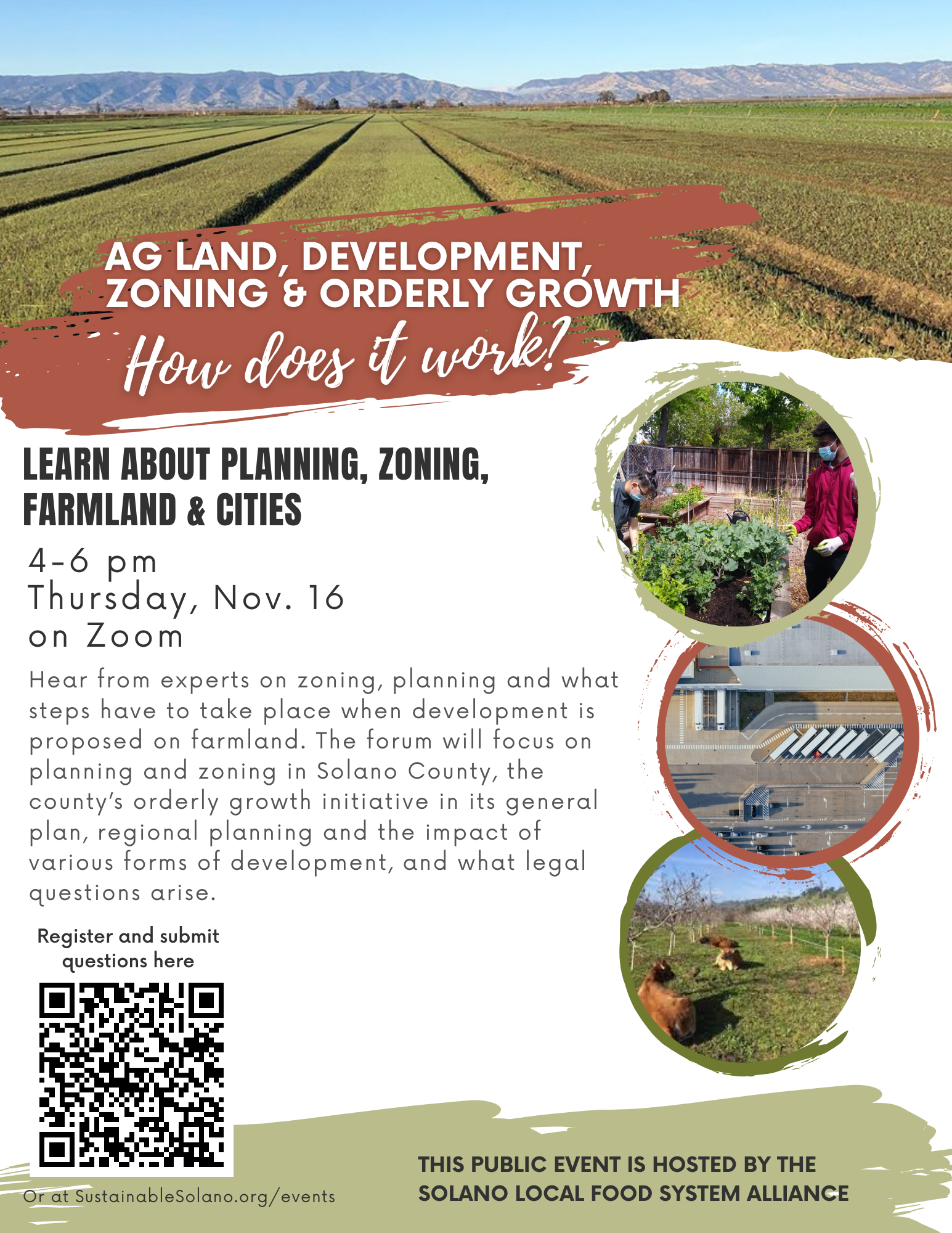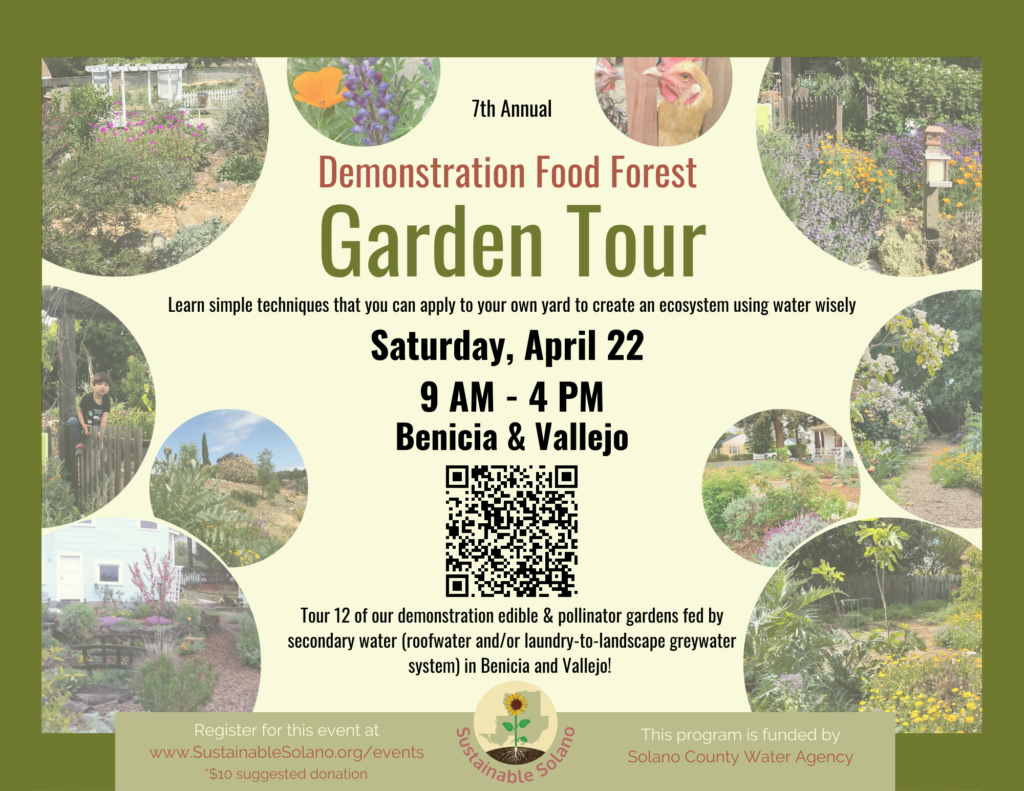Sustainable Solano’s Position on California Forever
By Sustainable Solano
Sustainable Solano has remained publicly silent until now about California Forever, both as a proposal and a ballot item. But we have spent that time in active discussions as a team and board to weigh the California Forever proposal and the process taken to get it to this point and test it for alignment with Sustainable Solano’s mission and objective to nurture initiatives for the good of the whole. We work to help bring our communities together in a way that connects people with each other, the Earth and something larger than themselves, and we must base our responses upon those values.
We have determined the motives behind California Forever do not align with our values as an organization, even if some parts of the proposed community do reflect measures we would like to see for Solano County’s existing cities.
Sustainable Solano’s work around community resilience, sustainable landscapes and local food all starts at a singular nexus — the interest in giving a voice to the community and building community trust toward the good of the whole. We can say without a doubt that the approach taken to acquire property and establish California Forever does not align with that core value for our organization. Solano County residents are frustrated due to the lack of transparency and absence of trust around the intentions of those behind California Forever. As an organization that is exploring what it means for us to democratically govern ourselves in an open manner, we ask no less of those who are seeking to change the county where we ground our work.
Even in the structure of its proposed community, California Forever does not align with our values. The decision for this community to remain unincorporated will result in residents being denied a locally elected municipal government. The new city will not have a mayor or city council, with many governmental functions relegated to nonprofits established by California Forever, or to the County Board of Supervisors. Consequently, the voices of residents may go unheard, and their ability to participate meaningfully in shaping the future of their community can be hindered. Without a local government, residents are often deprived of the essential mechanisms for representation, decision-making, and resource allocation that are fundamental to democratic governance. Issues such as environmental protection, infrastructure development, and public services become challenging to address without a locally elected centralized authority to coordinate efforts and advocate for community needs.
In the absence of a community-elected municipal government, this unincorporated city may face significant obstacles in achieving the democratic ideals of equitable representation and collective decision-making.
There are other areas where California Forever does not properly align with Sustainable Solano’s mission and values. We promote sustainable land use and the protection of ag land, which this proposal would directly affect as well as removing range land and endangering critically important habitat. We work with communities to lift up residents’ voices around environmental degradation and injustice, and see where creation of a large new city in the county would increase the negative effects on surrounding communities commensurate with increased traffic and strains on water supplies.
California Forever paints a picture of a community that would be built for walkability with good jobs and affordable housing. We appreciate and understand the vital importance of these features of a sustainable city, and would like to see more in our existing cities — cities where people could easily walk, bike or take local transit to jobs that pay a livable wage, have access to grocery stores with healthy seasonal food, can gather in public spaces with urban greening, and use renewable, local energy. We would like to encourage building this vision within our existing cities, and invite you to think about how such changes could be brought to where you live. These strategies would strengthen Solano County and our local communities, but for California Forever they remain only ideas at this point, and there are far too many conflicts with our values for us to support the California Forever proposal as a whole.




